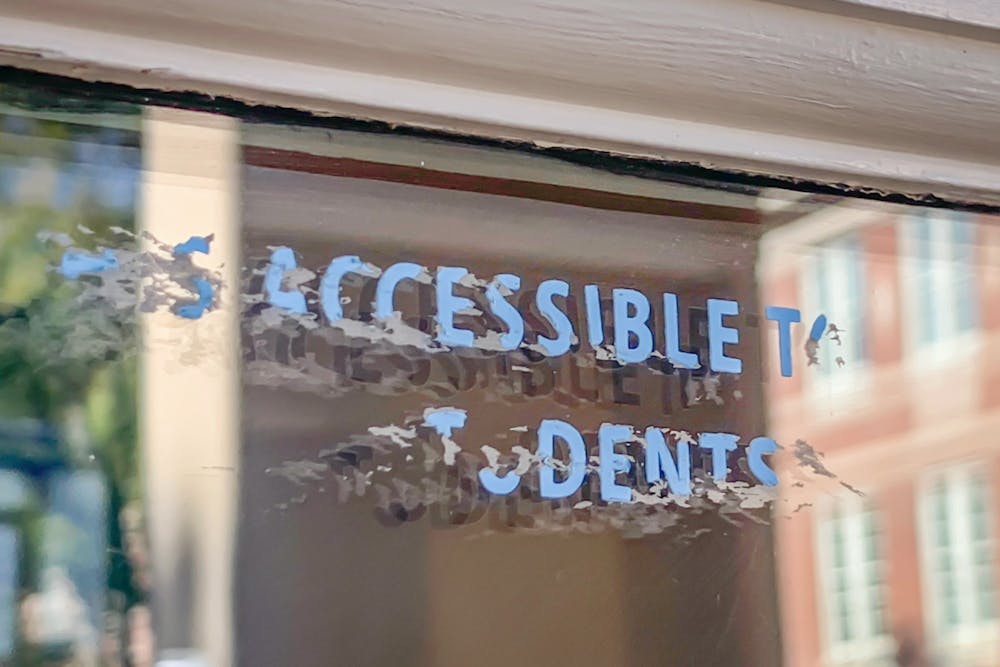I never had any delusions that UNC was built with me in mind. During my time in undergrad, we were still protesting Silent Sam and Saunders Hall. Coming back, I had a sense of clarity about the limitations of this institution. I knew UNC couldn’t give me the education I really wanted, but at least I knew how I was going to make the most of it.
But I still wasn’t prepared for this constant, visceral reminder that this campus quite literally isn’t designed for me. It’s exhausting.
During my orientation, I was stuck in classrooms where my wheelchair didn’t fit between the desks. When we had an event with free LocoPops, all the ice cream coolers were conveniently down a set of steps.
When we took a tour of the building where my program is housed, my tour guides didn’t even know where the elevator was. I’m constantly worried about attending student organization events because I never know what obstacles I’ll encounter in simply getting there.
The Old Well may have a wheelchair ramp now, but a place that was home to me for four years might never be accessible to me again. Instead of using Woollen, I pay for a membership to swim at the UNC Wellness Center at Meadowmont — at least they have accessibility parking.
But truth be told, I’m not as angry about this as I have every right to be. The hardest — and most surprising — aspect of this experience is that it's been kind of embarrassing. I feel ashamed about just how ignorant I was about the experiences of disabled students, especially those of us who use wheelchairs, on this campus.
I have always objectively known that the campus was inaccessible for many, but this year I’ve realized just how insidious that inaccessibility is.
I won’t be the last student in this position, so the only choice I have is to exorcise my shame with honesty and humility. I invite you to join me.
Perhaps you scheduled a meeting in a lecture hall with tiered seating. Or you don’t know where the accessibility parking spots are on Franklin Street. Maybe — like The Daily Tar Heel — you moved your office to the second floor of a building with a broken elevator. Maybe you’ve just never thought that much about it. Maybe you use a wheelchair yourself, but never noticed that your video lectures weren’t subtitled. When we are honest, we give ourselves the opportunity to grow and to learn.
Inaccessibility thrives because it is invisible to the people who do not face it, regardless of how much education you receive. As with shame and embarrassment, the only way to address it is to talk about it and create an action path forward.
@hatcherade
opinion@dailytarheel.com | elevate@dailytarheel.com
To get the day's news and headlines in your inbox each morning, sign up for our email newsletters.



